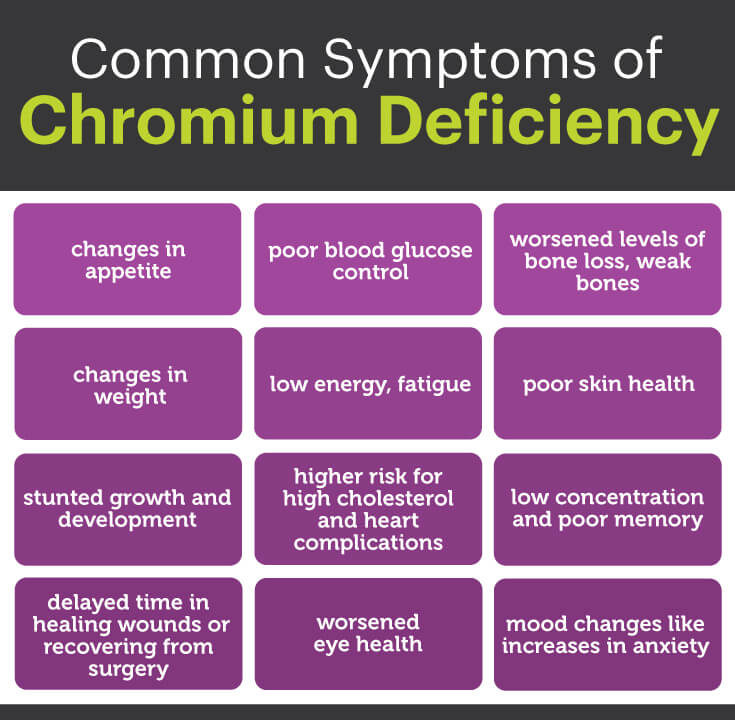This Dr. Axe content is medically reviewed or fact checked to ensure factually accurate information.
With strict editorial sourcing guidelines, we only link to academic research institutions, reputable media sites and, when research is available, medically peer-reviewed studies. Note that the numbers in parentheses (1, 2, etc.) are clickable links to these studies.
The information in our articles is NOT intended to replace a one-on-one relationship with a qualified health care professional and is not intended as medical advice.
This article is based on scientific evidence, written by experts and fact checked by our trained editorial staff. Note that the numbers in parentheses (1, 2, etc.) are clickable links to medically peer-reviewed studies.
Our team includes licensed nutritionists and dietitians, certified health education specialists, as well as certified strength and conditioning specialists, personal trainers and corrective exercise specialists. Our team aims to be not only thorough with its research, but also objective and unbiased.
The information in our articles is NOT intended to replace a one-on-one relationship with a qualified health care professional and is not intended as medical advice.
Chromium Benefits for Blood Sugar, High Cholesterol & More
August 30, 2023

Chromium, a type of chemical element that’s actually a hard and brittle metal, is a trace mineral needed by the body in small amounts for healthy functioning. What is chromium most well-researched for in regard to promoting health? Blood sugar and diabetes control, heart health, weight management and brain health are all known benefits of chromium.
Chromium plays a role in the insulin-signaling pathways that allow our bodies to control the amount of sugar we take in, helping balance blood glucose levels and giving us stable energy. Research also shows that chromium can help protect DNA chromosomes from damage, which means chromium may be able to halt cell mutations that can lead to various chronic diseases.
In addition, chromium is associated with longevity and improved cardiovascular health due to its role in metabolizing fats, in addition to proteins, carbs and other nutrients. But is it safe? In what amounts?
What Is Chromium?
According to the National Institute of Health, there are two types of chromium: 1) trivalent (chromium 3+), which is considered “biologically active” and can be found in foods, and 2) hexavalent (chromium 6+), which is considered toxic and unsafe for humans, so it’s used in industrial applications and isn’t meant to be acquired from foods. (Chromium 6 is a chemical that appears to cause cancer and was featured in the Erin Brockovich story that was made into a film, plus it infiltrated the tap water for over two-thirds of all Americans.)
What is chromium found in? Chromium is naturally present in many whole foods, including brewer’s yeast, certain kinds of meats, vegetables, potatoes and whole grains. Chromium enters the body mostly through diet since it’s stored in soil and rocks that penetrate the crops we wind up eating, plus in smaller amounts in the water that we drink. Drinking tap water supplies some of our chromium, as does cooking in stainless-steel cookware.
Deficiency Symptoms
According to the USDA, chromium deficiency isn’t very common in the U.S. and other developed nations since most people consume enough chromium on a daily basis on average to meet or exceed the “adequate intake” amount (the total amount needed to support health and prevent chromium deficiency).
On average, adult women in the U.S. consume about 23 to 29 micrograms of chromium per day from food (meeting their needs), and men consume about 39 to 54 micrograms per day (exceeding their needs), according to USDA reports. Even infants usually get enough chromium whether they’re breast-fed or formula-fed, since the average amount of chromium in breast milk of healthy, well-nourished mothers is about 0.24 micrograms per quart (the ideal amount that’s equal to the recommended daily intake).
On the other hand, some medical researchers believe chromium deficiency is much more prevalent, especially in people who don’t properly respond to insulin — which is a good deal of the population that’s overweight and eats a poor diet. People with diabetes and the elderly are more likely to have a chromium deficiency than otherwise healthy adults or children.
When a chromium-based deficiency does occur, common symptoms include:
- poor blood glucose control
- worsened levels of weak bones and bone loss
- low energy, fatigue
- poor skin health
- higher risk for high cholesterol and heart complications
- low concentration and poor memory
- worsened eye health
- mood changes, like increases in anxiety
- changes in appetite
- changes in weight
- stunted growth and development
- delayed time in healing wounds or recovering from surgery
Recommended Daily Intake
The established Dietary Reference Intakes of chromium were developed by the Institute of Medicine of the National Academy of Sciences in 1989 and are based on the amount needed by people who are otherwise healthy, so your exact needs may differ a bit depending on your current health, weight and level of activity.
Adequate intakes for chromium are based on age and gender and are as follows:
- Infants 0 to 6 months: 0.2 micrograms
- Children 7 to 12 months: 5.5 micrograms
- 1 to 3 years: 11 micrograms
- 4 to 8 years: 15 micrograms
- 9 to 13 years: 25 micrograms for boys, 21 micrograms for girls
- Teens 14 to 18 years: 35 micrograms for boys, 24 micrograms for girls
- Adults 19 to 50 years: 35 micrograms for men, 25 micrograms for women
- Women who are pregnant: 30 micrograms
- Women who breastfeeding: 35 micrograms
Other health care professionals recommend more chromium to help with blood sugar control, especially for people with existing cases of mild or serious insulin-resistance or diabetes; 200 micrograms a day as part of a multivitamin is recommended by many nutrition experts, and high doses up to 1,000 micrograms for those with type 2 diabetes or metabolic syndrome are prescribed in some cases.
Health Benefits
1. Helps Control Blood Sugar and Prevent Diabetes
Chromium can help enhance the role of insulin, the critical hormone that controls blood sugar and helps bring glucose into cells where it’s used for bodily energy. Chromium also supports a healthy metabolism and storage of nutrients throughout the body, since it can help you better absorb and distribute nutrients from carbohydrates, fats and proteins found in the foods you eat.
Brewer’s yeast (also called nutritional yeast), for example, is a high source of chromium and has been found to help support metabolism of sugar (in the form of glucose) within the blood, which is beneficial for preventing glucose-intolerance, insulin-resistance and diabetes formation.
One study conducted by the Human Nutrition Research Center U.S. Department of Agriculture found that when individuals being treated for type 2 diabetes were either given a placebo or chromium supplements over a four-month period each day while continuing to take normal medications and not changing eating habits, insulin values and cholesterol levels decreased significantly in the group given supplemental chromium compared to the placebo group.
However, it’s important to note that studies show mixed results when it comes to chromium’s effectiveness in preventing diabetes. Many studies show beneficial effects, but others show that chromium doesn’t have a strong ability to control blood sugar in people prone to diabetes without combining it with any other intervention methods.
2. Helps Reduce High Cholesterol
Chromium is needed for normal metabolism of fats, including cholesterol. Research shows a link between higher chromium intake and healthier arteries and levels of blood cholesterol. Some studies even show that people who die from heart disease tend to have lower levels of chromium in the blood at the time of death.
When researchers at the Department of Medical Education of Mercy Hospital and Medical Center tested the effects of chromium supplementation in adults over a 42-day period, the participants experienced lowered levels of total cholesterol and lower levels of low-density lipoprotein (LDL) “bad” cholesterol when taking chromium compared to the placebo group.
3. May Help Prevent Weight Gain and Overeating
Chromium (in the form chromium picolinate or CrPic) has been associated with a reduction in the risk for obesity, less weight gain and may positively affect food intake. At this time, the exact mechanism by which chromium affects hunger and weight is still unknown, but some studies find that higher chromium intake is associated with a reduction in adipose tissue (fat accumulation on the body) and better controlled eating.
One study done by the Biomedical Research Center at the Louisiana State University found that chromium supplements effectively helped modulate food intake in healthy, overweight, adult women who reported craving carbohydrates. After comparing the effects of chromium versus placebo in 42 overweight women over an eight-week period, the group taking 1,000 milligrams of chromium daily experienced reduced food intake, reduced hunger levels, fewer fat cravings and a slight decrease in body weight.
4. Helps Maintain Brain Health and Fight Cognitive Decline
Recent studies highlight the role of healthy insulin response in maintaining brain health and cognitive function into old age. Because chromium is capable of improving glucose levels and insulin response, it may act as a beneficial modulator of brain function and is associated with a reduction of age-related alterations of the brain.
Specifically, chromium is linked to healthier hypothalamic functions. The hypothalamus is extremely important, a central part of the autonomic nervous system that helps control body temperature, thirst, hunger, sleep and emotional activity. Research suggests that chromium can help keep the hypothalamus in a more youthful state, better regulate appetite in elderly adults and prevent negative effects on brain neurons caused by aging.
Many other parts of the brain may also benefit from higher chromium levels, including the the pineal gland and thymus, which are also impacted by insulin control.
5. May Help Improve Skin Health and Prevent Acne
Rapid changes in blood sugar levels are associated with acne and other skin reactions, so because chromium helps to balance blood sugar levels it is linked with improvements in skin health.
Foods rich in chromium (such as broccoli) also usually contain other phyotnutrients and antioxidants that can improve skin’s appearance and help fight acne or common signs of aging.
6. Supports a Healthy Metabolism and Energy Levels
Getting adequate amounts of trace minerals like chromium, calcium and magnesium are especially important for people who are active, since these micronutrients are needed to ensure the capacity to boost energy (calorie) expenditure, muscle and work performance.
Especially when someone restricts her body weight by eating less food and exercising, she needs to make sure to include plenty of chromium-rich foods in her diet in order to keep her metabolism running strong. Eating chromium-containing foods is important to make up for the loss of chromium being excreted through extra urine and sweat due to the recovery period following exercise.
7. Helps Maintain Eye Health
What is chromium useful for when it comes to protecting your eye sight? Chromium can help protect from age-related eye disorders like glaucoma. Glaucoma is related to diabetes and caused by a buildup of fluid in the eye, adding harmful pressure to the eye’s delicate optic nerve, retina and lens, which can eventually lead to blindness.
Chromium can lower the risk for diabetes and related eye disorders because of its beneficial role in controlling blood glucose.
8. Helps Protect Bones From Fractures and Osteoporosis
Chromium is known to slow the loss of calcium, so it might be beneficial for preventing bone loss and bone-related disorders that are especially common in older women. Therefore, it’s also a natural remedy for osteoporosis.
Best Food Sources
At this time, there isn’t a reliable database of chromium content within common foods that’s been authorized by the USDA or another credible authority. Another factor that makes it difficult to know what the best food sources are of chromium is that chromium content varies widely within a particular food depending on where it was grown, since soil quality has a lot to do with chromium’s presence.
Other natural factors that affect how much chromium is present in foods are the time of year the food was grown, the exact plant species, the ripeness of the food and how long it’s been sitting since being harvested — and possibly contamination from the environment. Chromium can also increase in concentration when it leaks into a food during cooking from stainless steel or nickel pots and pans.
According to the USDA, below are 12 of the best food sources for obtaining more chromium naturally through your diet (percentages based on the RDA for the average adult woman):
- Broccoli — 1 cup cooked: 22 micrograms (88 percent DV)
- Grapes/Grape Juice (pure, unsweetened) – 1 cup juice: 8 micrograms (32 percent DV)
- Potatoes — 1 cup: 3 micrograms (12 percent DV)
- Garlic — 1 teaspoon: 3 micrograms (12 percent DV)
- Basil — 1 tablespoon: 2 micrograms (8 percent DV)
- Grass-Fed Beef — 3 oz: 2 micrograms (8 percent DV)
- Oranges/Orange Juice (pure, unsweetened) — 1 cup: 2 micrograms (8 percent DV)
- Turkey — 3 oz: 2 micrograms (8 percent DV)
- Green Beans — 1 cup cooked: 2 micrograms (8 percent DV)
- Red Wine — 5 ounces: (varies widely) 1–13 micrograms (4–52 percent DV)
- Apples — 1 medium: 1 micrograms (4 percent DV)
- Bananas — 1 medium: 1 micrograms (4 percent DV)
Are Chromium Supplements Necessary and Safe?
The benefits of taking chromium supplements is still somewhat controversial and questioned by some medical experts, since studies to date show mixed results.
Dietary supplements containing chromium include chromium picolinate, chromium polynicotinate and several other related types. You can buy chromium-based supplements in tablet or capsule form, plus as part of a multivitamin, but since we only need such a small amount and most people already consume enough, it isn’t usually necessary for most adults.
Because researchers still find it hard to verify a specific biological role of chromium in the body, meaning one that other minerals or substances can’t carry out effectively without chromium, there isn’t agreement in the health community whether people should take a chromium supplement regularly or not. Most nutrition experts believe that food sources are a much healthier way to obtain the right amount of chromium.
For example, in 2014, the European Food Safety Authority published a report stating that chromium has no proven beneficial effects on health in otherwise healthy adults, so chromium was removed from the list of essential nutrients. On top of this, a chromium supplement can sometimes be expensive, which might deter people from consistently taking them.
What is chromium potentially capable of doing to our health if we consume too much of it? Most studies show that chromium is safe within moderate amounts but that too much can cause toxicity and some serious effects. Luckily, chromium overdoses are very rare since chromium only enters cells in very small amounts, while the rest gets flushed from the body somewhat easily. When someone does acquire too much (very likely from supplements and not food sources), chromium can potentially enters cells and lead to DNA damage, so it’s always smart to avoid taking any more than the recommended dose.
As with all nutrients, also try to obtain enough from natural whole food sources; this way you know you’re acquiring the right mix of vitamins and minerals that nature intended, without posing much of a risk for overdoing it on any particular nutrient.
Precautions and Side Effects
The chromium that you get from food sources alone won’t cause any problems, but taking high levels in supplement form can potentially interact with certain medications and worsen existing health conditions.
Excessive chromium is sometimes linked to digestive problems, like stomach aches, along with low blood sugar levels (hypoglycemia). Chromium toxicity, which can occur when very high levels are present within the body, has the potential to cause damage to vital organs like the liver, kidneys and heart.
Although it’s very rare and unlikely to happen, chromium toxicity is marked by changes in nerve signaling and heart beat, so always be sure not to take high doses of supplements without first speaking with a doctor.














